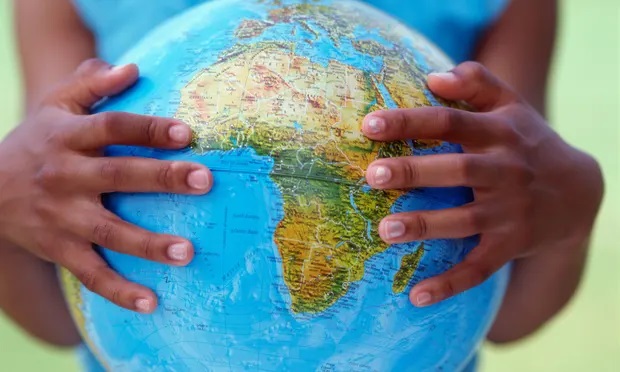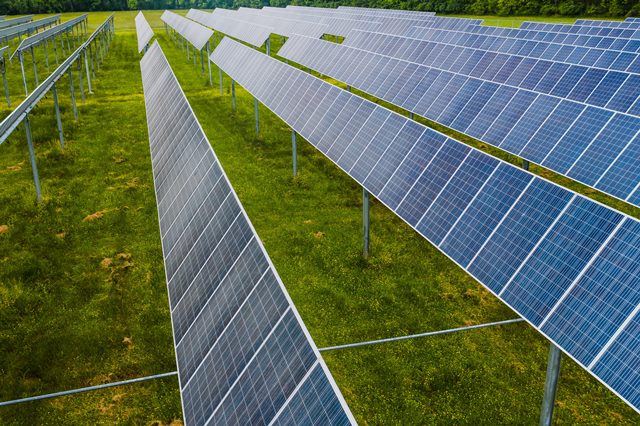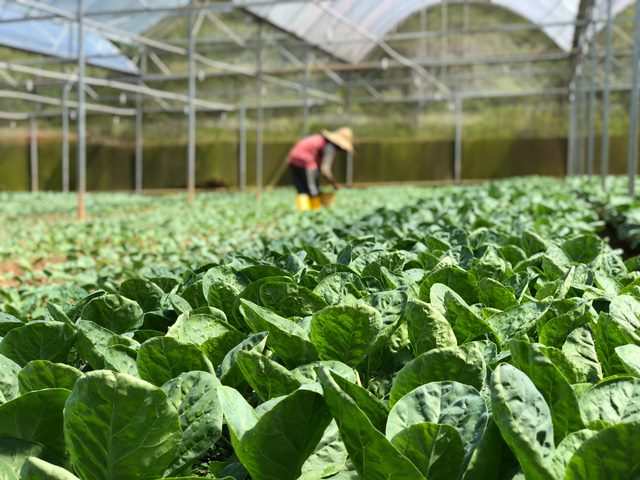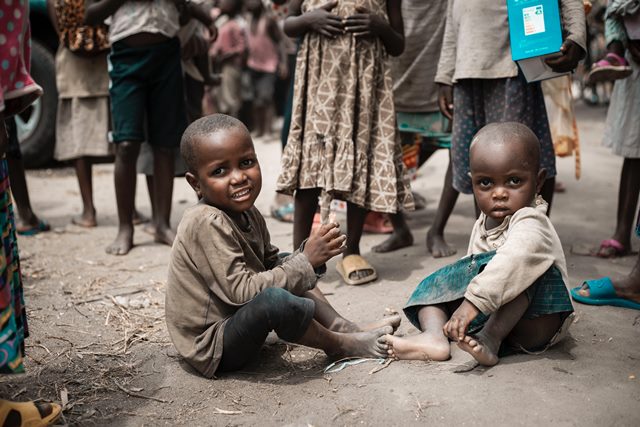Africa is the second-biggest continent, with nearly 1.4 billion people. This huge population boasts rich cultural traditions and diverse languages. Due to the sheer size of the continent, Africa needs to adopt sustainable development goals to improve its quality of life.
It’s refreshing that Africa is now finely poised to address sustainable development issues. Thanks to its wealth of natural resources, Africa is well-positioned to set the pace for a greener future.
But the journey ahead won’t be simple. Africa faces numerous difficulties, including overcoming poverty and advancing social equity.
However, the continent is rising to the challenge with creative plans and solutions meant to create a better future for its citizens and the planet.
This article will explore some methods and innovations promoting sustainable development in Africa.

Strategies for Sustainable Development in Africa
Below are key strategies for development in Africa:
Renewable Energy

Access to dependable and affordable energy is one of Africa’s biggest problems. Renewable energy provides a long-term answer to this problem.
Energy resources from the sun, wind, earth’s heat, and water are abundant in Africa. This has led to a reduction of fossil fuels in nations like Kenya, Egypt, and Morocco thanks to their investments in renewable energy projects like wind and solar power plants.
These projects have also resulted in job opportunities for the nearby communities.
Green Agriculture

The agricultural sector in Africa provides nearly 44 percent of employment opportunities.
Green agriculture refers to the application of the principles of sustainable development to agriculture, ensuring the production of food, wood, and fibers while respecting the ecological, economic, and social limits that ensure the sustainability of this production.
Africa’s sustainable development relies heavily on green agriculture, which focuses on environmentally friendly and sustainable farming methods.
Several techniques are being used to promote green agriculture in Africa, including organic farming, conservation agriculture, and agroforestry. These methods decrease the use of dangerous chemicals while also boosting crop yields and soil fertility.
Circular Economy

A circular economy creates a closed-loop system where waste is recycled, reused, or reduced. This helps to reduce waste and advance sustainable development in Africa.
Thankfully, circular economy techniques like recycling, waste-to-energy, and upcycling are already being used on the continent.
For instance, waste-to-energy facilities are being built in Nigeria to produce electricity from waste. Upcycling programs are also being implemented in Kenya to transform waste into fashionable and marketable products.
Sustainable Transport
We Design & Develop Websites, Android & iOS Apps
Looking to transform your digital presence? We specialize in creating stunning websites and powerful mobile apps for Android and iOS. Let us bring your vision to life with innovative, tailored solutions!
Get Started TodayAnother strategy being used for sustainable development in Africa is sustainable transportation. African nations are moving towards various sustainable transportation options, including bicycles, electric vehicles, and public transportation.
Rwanda’s government has invested in e-motos, or electric motorcycles because they are economical and environmentally friendly. In addition to lowering air pollution, this initiative has given the nearby youth job opportunities.

Innovations for Sustainable Development in Africa
There are numerous creative approaches to sustainable development in Africa. These innovations are intended to help the continent overcome its problems and give its people a better future.
We’ll look at a few of the creative approaches being used in Africa to promote sustainable development here:
Mobile Technology
Mobile technology has completely changed how Africans live, work, and interact. It has also evolved into a ground-breaking strategy for sustainable development in Africa.
For instance, mobile technology has made the advancement of sustainable agriculture, the enhancement of healthcare, and the expansion of finances possible.
Small-scale farmers can access markets, information, and funding options through mobile apps like Farmcrowdy and WeFarm. MedAfrica and mPedigree are other two examples of mobile health apps enhancing access to healthcare in rural areas.
3D Printing

Cutting-edge technology like 3D printing is solving many of Africa’s problems.
Prosthetic limbs, water filters, and housing are just a few examples of affordable, long-lasting products made using 3D printing.
Additionally, a non-profit group called Field Ready uses 3D printing to produce necessities like medical supplies in remote and disaster-stricken areas.
Meanwhile, a South African company called ICON has created a 3D-printed housing alternative that is cost-effective, environmentally friendly, and quick to construct.
Smart Grids
Smart grids are sophisticated electricity networks that monitor and control the distribution of electricity using digital technology.
In Africa, smart grids are being used to expand access to dependable and reasonably priced electricity.
For instance, Tanzania has implemented an innovative grid system to increase the effectiveness and dependability of the electricity network. To reduce energy losses and enhance customer service, the system uses advanced metering and remote monitoring.
Blockchain Technology

Many African countries are leading the way with blockchain technology to encourage accountability, transparency, and trust.
Blockchain technology can provide better supply chain management, greater financial accountability, and help promote renewable energy.
African startup BitPesa is utilizing blockchain technology to streamline international transfers and broaden financial access in Africa.
We Design & Develop Websites, Android & iOS Apps
Looking to transform your digital presence? We specialize in creating stunning websites and powerful mobile apps for Android and iOS. Let us bring your vision to life with innovative, tailored solutions!
Get Started TodayChallenges and Opportunities for Sustainable Development in Africa
Although Africa has much potential for sustainable development, it also faces many obstacles.
However, there are also opportunities for sustainable development in Africa that can be taken advantage of to raise people’s living standards and create a better future for the entire continent. Some African countries like Kenya and South Africa are already leading the way.
Challenges for Sustainable Development in Africa
Poverty
Poverty is one of the biggest challenges facing sustainable development in Africa. Being unable to access essential services like healthcare, education, and sanitation is just one of the many ways poverty affects people’s lives.
Additionally, strategies for sustainable development like green agriculture and renewable energy cannot be fully implemented because of poverty levels in the continent.
Lastly, inadequate governmental systems and environmental degradation are other two issues that poverty is connected to.

Limited Access to Infrastructure
Many Africans do not have access to necessities like electricity, water, and sanitary facilities. Unfortunately, lack of access to these services hinders progress in health, education, and economic growth.
Moreover, limited access in such areas makes it difficult to implement sustainable development strategies like sustainable water management and renewable energy in Africa.
Poor Governance and Policies
In many African nations, weak governance structures are a significant problem. Poor governance can result in resource mismanagement and corruption, making it more difficult to implement sustainable development strategies.
Other significant obstacles to sustainable development in Africa include environmental degradation and climate change.
Droughts, floods, and other extreme weather events that significantly impact agriculture, water resources, and human health are a result of climate change.
As a result, agriculture, biodiversity, and water resources are all greatly impacted by environmental degradation.
Opportunities for Sustainable Development in Africa
Despite the obstacles to sustainable development in Africa, there are also chances to create a better future for the region.
For instance, solar, wind, and hydropower have enormous potential for use in Africa. Renewable energy can increase energy access, lower greenhouse gas emissions, and even generate employment.
Youth Empowerment
Another asset for sustainable development in Africa is the continent’s sizable and expanding youth population. Youth can be a potent force for change, inspiring entrepreneurship and innovation.
For example, African youth development foundations and the African Youth Initiative on Climate Change are youth-led initiatives that support sustainable development and work to improve Africa’s future.
African Continental Free Trade Area
We Design & Develop Websites, Android & iOS Apps
Looking to transform your digital presence? We specialize in creating stunning websites and powerful mobile apps for Android and iOS. Let us bring your vision to life with innovative, tailored solutions!
Get Started TodayThe African Continental Free Trade Area (AfCFTA) provides more opportunities for sustainable development in Africa. The AfCFTA seeks to establish a common market for goods and services across the continent. This could promote economic expansion, generate employment, and significantly reduce poverty.
The AfCFTA can also support sustainable development by promoting green trade and investment.
For the sake of our planet and its inhabitants, sustainable development must be prioritized by individuals, governing bodies, and businesses. Sustainable development aims to fulfill current needs without compromising the capacity of future generations to fulfill their own needs.
It is a call to action that requires teamwork to ensure that we create a better future for ourselves and future generations.
As individuals, we can help create a more sustainable future by incorporating sustainable practices into our daily lives. This includes reducing waste, saving energy, and purchasing sustainable goods.
By engaging in activism and public awareness campaigns, we can promote sustainable policies and initiatives at the local, national, and international levels.
In addition, African leaders must prioritize sustainable development to address climate change, deforestation, and biodiversity loss.
Businesses and non-governmental organizations (NGOs) are equally accountable for prioritizing sustainable development.
Sustainable business practices, such as cutting waste and greenhouse gas emissions, can help companies lessen their environmental impact. They can also put social sustainability first by encouraging ethical business practices and supporting their neighborhood communities.
NGOs can promote sustainable initiatives and policies and assist local communities in implementing sustainable practices.
In summary, we must collaborate to create a more sustainable future that meets everyone’s needs while protecting the continent’s resources for future generations.
Before you go…
Hey, thank you for reading this blog to the end. I hope it was helpful. Let me tell you a little bit about Nicholas Idoko Technologies. We help businesses and companies build an online presence by developing web, mobile, desktop, and blockchain applications.
We also help aspiring software developers and programmers learn the skills they need to have a successful career. Take your first step to become a programming boss by joining our Learn To Code academy today!
Put Your Tech Company on the Map!
Get featured on Nicholas Idoko’s Blog for just $200. Showcase your business, boost credibility, and reach a growing audience eager for tech solutions.
Publish Now










